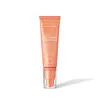What's inside
What's inside
 Key Ingredients
Key Ingredients

 Benefits
Benefits

 Concerns
Concerns

 Ingredients Side-by-side
Ingredients Side-by-side

Water
Skin ConditioningCaprylic/Capric Triglyceride
MaskingCyclomethicone
EmollientGlycerin
HumectantCyclopentasiloxane
EmollientCamellia Sinensis Leaf Extract
AntimicrobialDimethicone
EmollientSaccharomyces Lysate Filtrate
Skin ProtectingPhenoxyethanol
PreservativePolyacrylate-13
Tocopheryl Acetate
AntioxidantHelianthus Annuus Seed Oil
EmollientZea Mays Oil
EmulsifyingAcrylates/C10-30 Alkyl Acrylate Crosspolymer
Emulsion StabilisingPolyisobutene
Dimethiconol
EmollientOlea Europaea Fruit Oil
MaskingEthylhexylglycerin
Skin ConditioningDisodium EDTA
Prunus Amygdalus Dulcis Oil
Skin ConditioningPolysorbate 20
EmulsifyingArgania Spinosa Kernel Oil
EmollientSodium Hydroxide
BufferingSodium Hyaluronate
HumectantDimethicone Crosspolymer
Emulsion StabilisingWater, Caprylic/Capric Triglyceride, Cyclomethicone, Glycerin, Cyclopentasiloxane, Camellia Sinensis Leaf Extract, Dimethicone, Saccharomyces Lysate Filtrate, Phenoxyethanol, Polyacrylate-13, Tocopheryl Acetate, Helianthus Annuus Seed Oil, Zea Mays Oil, Acrylates/C10-30 Alkyl Acrylate Crosspolymer, Polyisobutene, Dimethiconol, Olea Europaea Fruit Oil, Ethylhexylglycerin, Disodium EDTA, Prunus Amygdalus Dulcis Oil, Polysorbate 20, Argania Spinosa Kernel Oil, Sodium Hydroxide, Sodium Hyaluronate, Dimethicone Crosspolymer
Water
Skin ConditioningPolyacrylate-13
Squalane
EmollientShea Butter Ethyl Esters
EmollientPolyisobutene
Phenoxyethanol
PreservativeRetinyl Palmitate
Skin ConditioningCitrus Aurantium Dulcis Peel Oil
MaskingXylitylglucoside
HumectantAnhydroxylitol
HumectantTetrahexyldecyl Ascorbate
AntioxidantTocopheryl Acetate
AntioxidantCollagen Amino Acids
MoisturisingPolysorbate 20
EmulsifyingXylitol
HumectantEthylhexylglycerin
Skin ConditioningSodium Hyaluronate
HumectantAlpha-Arbutin
AntioxidantGlutathione
Kojic Acid
AntioxidantNiacinamide
SmoothingAzelaic Acid
BufferingTocopherol
AntioxidantWater, Polyacrylate-13, Squalane, Shea Butter Ethyl Esters, Polyisobutene, Phenoxyethanol, Retinyl Palmitate, Citrus Aurantium Dulcis Peel Oil, Xylitylglucoside, Anhydroxylitol, Tetrahexyldecyl Ascorbate, Tocopheryl Acetate, Collagen Amino Acids, Polysorbate 20, Xylitol, Ethylhexylglycerin, Sodium Hyaluronate, Alpha-Arbutin, Glutathione, Kojic Acid, Niacinamide, Azelaic Acid, Tocopherol
Ingredients Explained
These ingredients are found in both products.
Ingredients higher up in an ingredient list are typically present in a larger amount.
Ethylhexylglycerin (we can't pronounce this either) is commonly used as a preservative and skin softener. It is derived from glyceryl.
You might see Ethylhexylglycerin often paired with other preservatives such as phenoxyethanol. Ethylhexylglycerin has been found to increase the effectiveness of these other preservatives.
Phenoxyethanol is a preservative that has germicide, antimicrobial, and aromatic properties. Studies show that phenoxyethanol can prevent microbial growth. By itself, it has a scent that is similar to that of a rose.
It's often used in formulations along with Caprylyl Glycol to preserve the shelf life of products.
Polyacrylate-13 is a type of acrylate polymer. Acrylate polymers are commonly used as adhesives in cosmetics.
Polyacrylate-13 creates a film to protect the skin. It is also used to thicken and stabilize a product. It works by making water a gel-like consistency. This gel consistency helps suspend particles.
Polyacrylate-13 is a copolymer of acrylic acid, acrylamide, sodium acrylate, sodium acryloyldimethyltaurate monomers
Learn more about Polyacrylate-13Polyisobutene is a synthetic polymer made from isobutene.
It is a film-forming agent and helps bind ingredients together.
Polyisobutene is not absorbed by the skin.
Learn more about PolyisobutenePolysorbate 20 is made by combining ethoxylation of sorbitan, ethylene oxide, and lauric acid. It is a mild cleansing agent, surfactant, and emulsifier.
As a surfactant, it helps collect dirt and oils for washing. Emulsifiers prevent oils and water from separating.
Polysorbate 20 also adds scent to a product. Since it is made using sorbitol, it has a sweet scent. Sorbitol can also be found in fruits such as apples and peaches.
The lauric acid used to create Polysorbate 20 is often derived from coconuts.
Polysorbate 20 may not be fungal acne safe.
Learn more about Polysorbate 20Sodium Hyaluronate is hyaluronic acid's salt form. It is commonly derived from the sodium salt of hyaluronic acid.
Like hyaluronic acid, it is great at holding water and acts as a humectant. This makes it a great skin hydrating ingredient.
Sodium Hyaluronate is naturally occurring in our bodies and is mostly found in eye fluid and joints.
These are some other common types of Hyaluronic Acid:
Learn more about Sodium HyaluronateTocopheryl Acetate is AKA Vitamin E. It is an antioxidant and protects your skin from free radicals. Free radicals damage the skin by breaking down collagen.
One study found using Tocopheryl Acetate with Vitamin C decreased the number of sunburned cells.
Tocopheryl Acetate is commonly found in both skincare and dietary supplements.
Learn more about Tocopheryl AcetateWater. It's the most common cosmetic ingredient of all. You'll usually see it at the top of ingredient lists, meaning that it makes up the largest part of the product.
So why is it so popular? Water most often acts as a solvent - this means that it helps dissolve other ingredients into the formulation.
You'll also recognize water as that liquid we all need to stay alive. If you see this, drink a glass of water. Stay hydrated!
Learn more about Water